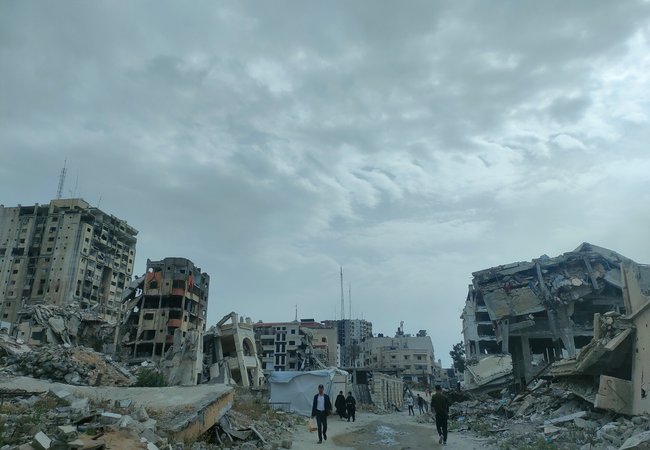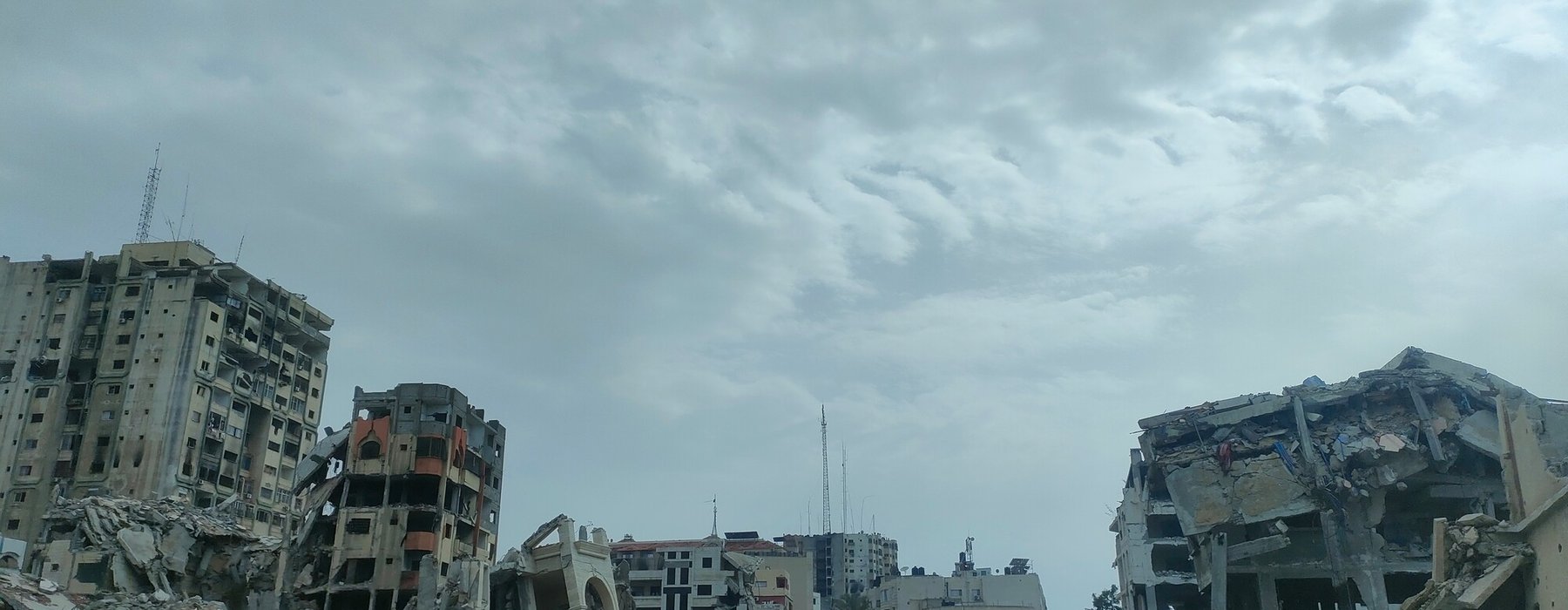Imagine being forced to choose between staying alive and risking death to feed yourself and your starving children.
This is not a thought experiment. This is daily life for people in Gaza - walking kilometres through militarised zones, risking death from sniper fire, just to fight for scraps of aid that is their human right.
Imagine yourself as a young pregnant mother in Gaza, your children are hungry, your husband may have been killed or crippled in an airstrike, you are starving and desperate. You have no access to clean water, no power, no way to prepare hot food, you have been displaced and forced to move on multiple occasions. To seek out aid you must leave your children at home and walk for kilometres, through militarised zones in which you may come under Israeli fire, to an aid distribution point at which you will have to compete with thousands of other hungry and desperate people in a scramble for the inadequate supplies on offer.
Every day we wake up with dread, bracing for the news of the day – has one of my nieces gone to bed hungry, or not at all? Has a hospital been hit? Has a relative been buried under the rubble? This is every day for Palestinians outside Gaza with relatives trapped in this man-made disaster zone.
Meanwhile, the reality of life for those inside Gaza is that they have been dehumanised, deliberately corralled into ever smaller ‘safe’ zones, actively blocked from accessing the aid which is essential to their survival.
Gaza is a graveyard and a prison.
Almost all of Gaza is subject to active Israeli military action or evacuation orders, corralling the people of Gaza into an area smaller than a fifth of the entire strip.
Recent increases in aid are welcome, but this is nowhere near enough to address the scale of need in Gaza.
- During the last ceasefire, over 600 trucks of aid a day were entering Gaza to be distributed from over 400 centres run by experienced humanitarian organisations with decades of experience in ensuring the right aid gets to the right people at the right time.
- Tokenistic and random air drops are a mockery of adequate aid delivery.
- The so-called distribution hubs of the GHF are little more than deathtraps and outposts manned by mercenary forces where aid is quite literally thrown out and dumped for the starving and desperate to scramble for whatever they can acquire.
- The most vulnerable have little if any chance of securing any of these limited supplies.
The model of humanitarian aid this represents, is a militarised, privatised and politicised one, which undermines and runs counter to all the core principles of humanitarianism.
The very idea of humanitarian aid is being twisted.
Air drops that scatter food randomly over the rubble of danger zones; privatised aid hubs guarded by mercenaries; aid delivered not with care, but contempt – all as though dignity is too much to ask for people already starved of everything else.
This is a model which is neither safe, nor accountable, nor ethical - it dehumanises those who are most in need, it circumvents international norms, ignores civic society, and operates outside the rigorous controls of the UN and existing humanitarian INGOs.
- Aid must be rooted in humanity, in impartiality, in independence and in dignity.
- Aid must be delivered locally, fairly, safely and transparently, not in militarised zones guarded by foreign contractors.
- Aid must not humiliate, must not be used an agent of control, must not kill those who seek it out.
- Gaza must not be a testing ground for a model of aid which condones, perpetrates and accepts these outcomes.
- Aid must be allowed to flow freely, in quantity, and through well established and effective organisations designed to deliver aid effectively, safely, with humanity and dignity.
Recently announced pauses to allow more aid to enter Gaza mean that, for the time being at least, there is at least some aid entering and being distributed by humanitarian organisations.
This is not anywhere near enough for the population of 2m.
Malnutrition and starvation have taken hold and nothing less than opening the gates to Gaza to allow aid to flood the entire area will prevent the humanitarian catastrophe unfolding before our very eyes.
Military action from Israel continues, people are still being shot and killed. Every day we hear of people dying of starvation. Critical infrastructure, water, power, communications, have completely collapsed.
Literally and figuratively, Gaza is being pushed into darkness.
Only a permanent ceasefire and a concerted international effort, immediately, can prevent this catastrophe from continuing to escalate. Every day of delay means more children will die, many of them from starvation. Every day of delay means that more innocent people in Gaza will lose their lives, must watch their children suffer, will see more family members lost forever.
This is a genocide.
It is being caused directly by the actions of Israel as an occupying force and in contravention of international law.
It must stop.
The world must stand up and act without hesitation and regardless of politics. Nations who are silent are complicit in this genocide.
The world must not stand aside, watching on in silence, allowing atrocities to continue unchecked.
We must draw the line.
This must end.
Gaza must be fed, watered, and allowed to rebuild its shattered lives and shattered infrastructure. Anything less is inadequate, anything less is to condone the actions and intentions which seek to destroy the people of Gaza.
Join the Red Line
Oxfam Cymru’s Red Line Cymru campaign draws a clear and urgent line:
Adequate humanitarian aid must be allowed to flow into Gaza now - freely, safely, and with dignity.
We call on the Welsh public, civic leaders, and policymakers to stand with us. Join the Red Line Cymru campaign. Demand:
- A permanent ceasefire to allow unrestricted aid delivery through all land crossings into Gaza
- An end to militarised and privatised aid models that humiliate and harm civilians
- A return to UN-led, principled humanitarian aid channels delivering sustained predictable aid flows
- The protection of humanitarian workers and infrastructure
- The upholding of international law and the dignity of Palestinian life
History will ask what we did when Gaza starved. Let the answer be: we drew the line.



